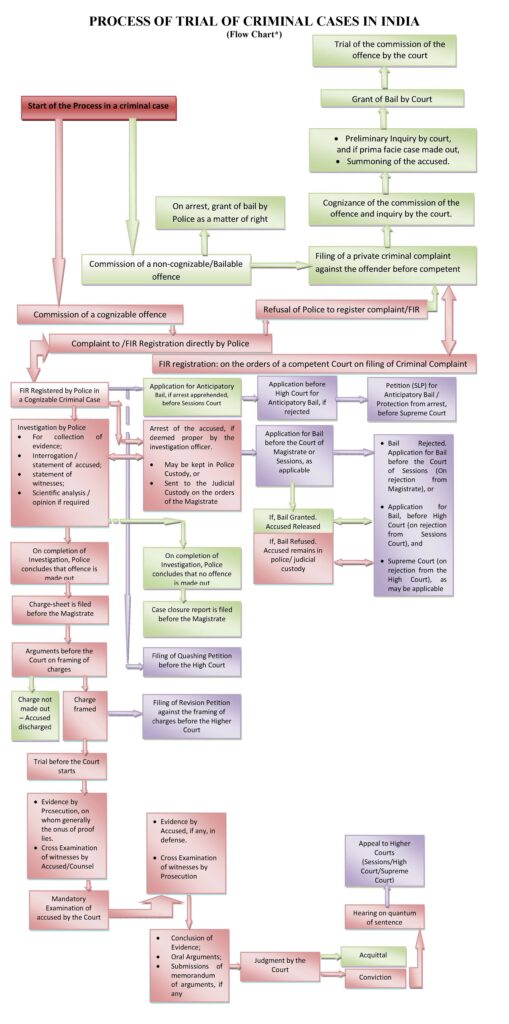
Criminal Litigation Process in India
Criminal litigation is the process of trying a criminal defendant in a court of law. In India, criminal litigation is governed by the Code of Criminal Procedure, 1973 (CrPC). The CrPC sets out the procedures for filing a complaint, conducting an investigation, and trying a criminal case.
The process of criminal litigation in India can be divided into the following stages:
- Filing of a complaint: The first step in criminal litigation is the filing of a complaint. A complaint can be filed by any person who has knowledge of a crime. The complaint can be filed with the police or with a magistrate.
- Investigation: Once a complaint is filed, the police are required to investigate the matter. The police may conduct an inquiry, collect evidence, and question witnesses.
- Arrest: If the police have sufficient evidence, they may arrest the accused. The accused person has the right to be produced before a magistrate within 24 hours of arrest.
- Pre-trial proceedings: After the accused is arrested, the case is transferred to a magistrate. The magistrate may grant bail to the accused or order that the accused be kept in custody. The magistrate may also schedule the case for trial.
- Trial: The trial of a criminal case is conducted by a court of law. The prosecution is required to prove the guilt of the accused beyond a reasonable doubt. The accused has the right to defend himself or herself against the charges.
- Judgment: After the trial, the court will deliver a judgment. The court may acquit the accused, convict the accused, or order a new trial.
- Appeal: If the accused is convicted, he or she has the right to appeal the judgment. The appeal can be filed with a higher court.
The process of criminal litigation in India can be long and complex. It is important to seek legal advice if you are involved in a criminal case.
Key Differences Between Criminal and Civil Litigation
There are a number of key differences between criminal and civil litigation in India. These differences include:
- The purpose of criminal litigation is to punish the accused for a crime, while the purpose of civil litigation is to resolve a dispute between two parties.
- The burden of proof in criminal litigation is beyond a reasonable doubt, while the burden of proof in civil litigation is on the preponderance of evidence.
- The accused in a criminal case has a number of rights, including the right to a fair trial, the right to remain silent, and the right to an attorney.
- The loser in a civil case may be ordered to pay damages to the winner, while the loser in a criminal case may be sentenced to imprisonment.
If you are involved in a legal matter, it is important to seek legal advice to determine whether you should pursue criminal or civil litigation.
